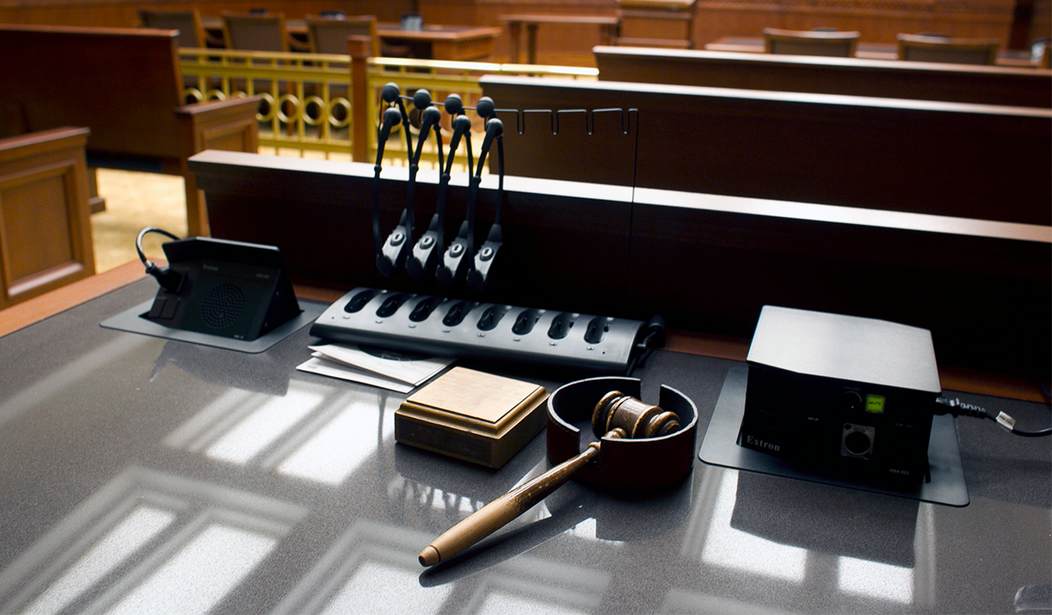There are already about a half-dozen challenges Illinois gun laws like the state’s ban on so-called assault weapons and large capacity magazines floating around the federal court system, and now the newly-signed law known as the Firearms Industry Responsibility Act is the subject of a lawsuit filed by the National Shooting Sports Foundation on Monday.
In a statement, NSSF senior vice president and general counsel Larry Keane declared the “flawed logic of this unconstitutional law is second only to the contempt for which the authors and Governor Pritzker hold for the Constitutionally-protected right of the citizens of his state to keep and bear arms,” adding that “This law bans commercial free speech, which is protected by the First Amendment.”
“It also requires firearm manufacturers and retailers to establish undefined ‘reasonable controls’ to prevent criminals from lying on background check forms,” Keane went on to say. “The irony is that the firearm industry works hand-in-hand with the ATF and Justice Department to prevent illegal straw purchases of firearms while the governor signs laws that set criminals free on the streets to prey on the innocent citizens of Illinois. Just like Governor Pritzker’s signature on a law banning cash bail, this law empowers criminals and punishes those who obey the law. We are confident that this unconstitutional law will not survive.”
In its complaint, the NSSF delivered a blistering rebuke to lawmakers, arguing that the new law violates a host of constitutional protections and should be thrown out by the courts.
Under HB 218, the “sale, manufacturing, importing, or marketing of a firearm-related product” anywhere in the country may be deemed to violate Illinois law (and justify the imposition of sweeping liability), even if it complied with all state and federal regulations, if an Illinois judge or jury later finds that such conduct “contribute[d] to a condition in Illinois that endangers the safety or health of the public.”
Although the statute purports to be aimed at preventing firearms from being used in such a way that endangers public safety or health, HB 218 does not regulate the use (or misuse) of firearms. Nor does it impose liability on individuals who misuse firearms to the detriment of themselves or others. Instead, HB 218 regulates selling, manufacturing, and advertising lawful (and constitutionally protected) firearms and related products. In other words, HB 218 regulates commerce in and speech relating to arms—even when that commerce and speech takes place entirely outside of Illinois, as will often be the case. HB 218 also removes traditional elements of tort law that ensure that judges and juries do not impose liability on private parties for constitutionally protected conduct. Making matters worse, the statute jettisons traditional proximate cause in favor of allowing state courts to impose liability on licensed industry members for the actions of thirdparty criminals with whom the industry members never dealt.
None of that is consistent with the Constitution. The First Amendment prohibits states from punishing wide swaths of truthful speech about lawful products, even if the products are dangerous or the speech is unpopular. The Second Amendment protects commerce in arms. Numerous constitutional provisions prohibit states from regulating conduct that takes place wholly beyond their borders, even when that commerce has effects within the state. And the Due Process Clause prohibits states from punishing one private party for the conduct of another.
The NSSF says that in addition to all of those constitutional issues, HB 218 also runs afoul of the Protection of Lawful Commerce in Arms Act, which was passed on a bipartisan basis in Congress back in 2005 specifically to prevent junk lawsuits like the ones that will be empowered by the Illinois law.
Illinois is now trying to resurrect the very kinds of lawsuits that the PLCAA was enacted to eliminate. Under HB 218, state officials and private parties may bring civil actions against licensed manufacturers and sellers of firearms, ammunition, and related products for damages and other relief resulting from the criminal use of a firearm by a third party. HB 218 therefore falls squarely within the express-preemption provision of the PLCAA.
There are five challenges to the Illinois law in the NSSF’s lawsuit. Besides the count arguing that the Illinois law is preempted by the PLCAA, the firearms industry trade group also alleges that HB 218 violates the First and Second Amendments, the due process clause of the Constitution, and amounts to an unconstitutional extraterritorial regulation by directly regulating lawful activity in other states.
As the NSSF points out in its complaint, enforcement of HB 218 will have a chilling effect on the lawful exercise of our constitutional rights; punishing speech that the state finds unacceptable, holding gun store owners responsible when they’re the victim of a burglary or theft, and targeting gun companies with civil litigation for simply making products designed for parents to help teach their kids real gun safety.
This isn’t the first law of its kind, and a federal appeals court in California is already considering whether a similar law signed by Gov. Gavin Newsom should be put on ice. The plaintiffs’ attorneys feel pretty confident that the Ninth Circuit panel will see the California law for the unconstitutional power grab that it is, but we’re still waiting a decision in Safari Club Int’l v. Bonta, and Junior Sports Magazines Inc. v. Bonta. It would be great if the Ninth Circuit decision came down soon enough to have an impact on the opening round of briefs in the Illinois case, but even if the Ninth Circuit remains silent in the short term the National Shooting Sports Foundation has given the U.S. District Court in southern Illinois more than enough legal ammunition to shoot down the state’s attempt to infringe on our fundamental rights.









Join the conversation as a VIP Member